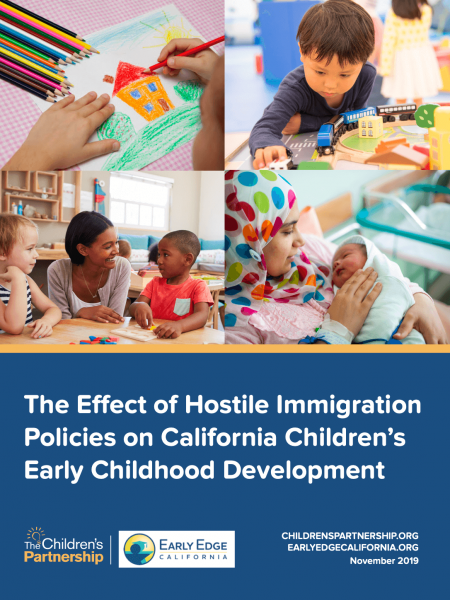What do you do when a worried parent asks you to take care of their four-
year-old if Immigration and Customs Enforcement (ICE) deports them? For
early care educators, childcare workers, home visitors, and preschool
teachers, these types of questions have become more common.
Our latest report, The Effect of Hostile Immigration Policies on
California Children’s Early Childhood Development, written in
partnership with Early Edge California, examines the effects of this hostile
climate on our youngest Californians and the early childhood workers who
support them.
Nearly half of California’s three million children under five years old
are children of immigrants.
With the spread of anti-immigrant policies, many immigrant families are
fearful of utilizing health, nutrition, early education, and essential services
that impact their children’s wellbeing. Over 1.3 million California children
are at risk of losing out on their basic needs, which, compounded by the
stress, anxiety and instability their families are experiencing, has a direct
impact on their healthy, normal development.
As caregivers, early childhood education (ECE) providers understand the
importance of basic needs like food, housing and health care to a child’s
early learning and development. Yet ECE staff face new challenges of how
to support families facing fear, economic stressors, and disruptions to their
lives. With one in five early childhood providers identifying as immigrants
themselves, the emotional burden can be exceptionally high.
By building the capacity of our early childhood workforce to respond to
trauma, creating safe spaces for all families, and fostering connections
between child-serving systems, we can better support early childhood staff
and the children they serve. With unprecedented commitments to early
childhood development made by California state leaders like Governor
Gavin Newsom, now is the time to make sure our youngest Californians are
set up to thrive.

